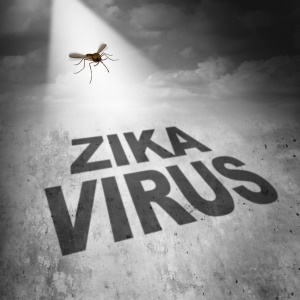
Some infants who appear healthy at birth after being exposed to the Zika virus in the womb develop neurological problems during their first year of life, a new study finds.
The study included pregnant women in Colombia who were exposed to Zika and had foetal MRIs and ultrasounds as their pregnancies progressed.
No sign of Zika at birth
Of the 82 babies delivered by the women, 77 were born with no sign of congenital Zika syndrome, a group of birth defects that includes severe brain abnormalities, eye problems and smaller-than-normal head size (microcephaly).
Seventy of the 77 infants underwent additional neurodevelopmental testing when they were four to eight months or nine to 18 months of age.
"These infants had no evidence of Zika deficits or microcephaly at birth. Neurodevelopmental deficits, including declines in mobility and social cognition, emerged in their first year of life even as their head circumference remained normal," said study first author Dr Sarah Mulkey. She's a foetal/neonatal neurologist at Children's National Hospital in Washington, D.C.
"About one-third of these newborns who underwent postnatal head ultrasound had non-specific imaging results, which we believe are the first published results finding a link between subtle brain injuries and impaired neuromotor development in Zika-exposed children," Mulkey said in a hospital news release.
The study was published online in JAMA Pediatrics.
Opportunity to intervene earlier
The findings highlight the importance of long-term neurodevelopmental follow-up for infants exposed to Zika in the womb, the researchers said.
"Normally, neurodevelopment in infants and toddlers continues for years, building a sturdy neural network that they later use to carry out complex neurologic and cognitive [thinking] functions as children enter school," Mulkey said.
"Our findings underscore the recommendations by the Centers for Disease Control and Prevention that all infants exposed to Zika in the womb undergo long-term follow-up, providing an opportunity to intervene earlier," she concluded.
Image credit: iStock




 Publications
Publications
 Partners
Partners















